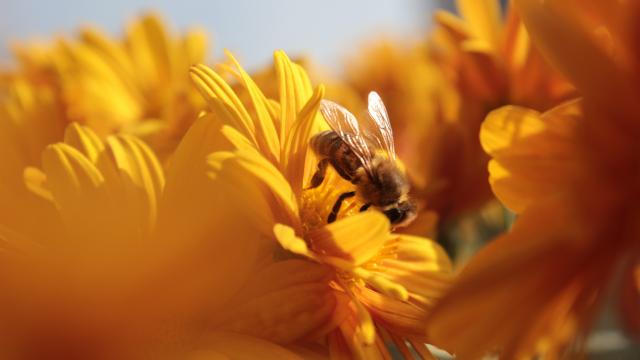By Fatima Halloum
There’s a buzzing feeling of unease for a Wyndham beekeeper who is worried a recent outbreak of a destructive parasite that cripples honeybees could reach hives in Victoria.
Varroa destructor was detected in New South Wales in June, and has since prompted a state government order prohibiting the movement of bees, beehives, beekeeping equipment and products into and within parts of northern Victoria.
Carmel Gerdsen said she is “very concerned” about the varroa mite outbreak and the consequences the parasite can have on our country’s “healthy population” of bees.
“We’ve been instructed as a state to go out and test our hives to do some surveillance ourselves and report back, to make sure it’s not here yet,” she said.
“One mite can start a whole outbreak.”
Ms Gerdsen, who has been a beekeeper since for about 11 years, said the tiny parasite can spread between hives by attaching onto an unaware keeper’s clothing or shoes.
“If you can think of it like, a mosquito can carry the malaria virus, the varroa mite carries other virus vectors which affect honey bees,” she said.
“One of the worst ones is called the deformed wing virus, and if bees have deformed wings they can’t fly, they can’t forage, they can’t bring back food and the whole colony collapses.
“The other thing with varroa mite, is that you only need one mite. Because a mature adults female, the first egg she lays will be a male egg, and then she will lay three female eggs, and so then they interbred and the whole cycle can start.”
Ms Gerdsen said there are “other pests and disease” that threaten the health of Australia’s bees, and the outbreak would further add to their workload.
“Australia was the only continent left in the whole world that didn’t have varroa mite,” she said.
“This outbreak now … it looks like it may have been here for a while … so this a much bigger emergency for the beekeeping industry.”
Ms Gerdsen said she received a notification from Agriculture Victoria, who instructed beekeepers to do ‘sugar shake’ to test for the mites.
The process involves dusting adult bees with icing sugar, which sticks to the feet of varroa mites and prevents them from clinging to the honey bees.
Beekeepers can then check the sugar to see if there are any parasites present.
“Once we have varroa mite we have to treat our hives on an ongoing basis, there are chemicals that you can use but the mites can form a resistance,” Ms Gerdsen said.
“There are organic compounds you can use which don’t leave any traces in the honey and the bees don’t build up a resistance, but they don’t penetrate as deeply.”
The occurrence of the outbreak puts is also worsened by an upcoming mass bee event.
“One of the reasons why this incursion is very critical at this time, in about four to six weeks, we have the biggest pollination event that takes place in Australia, which is almond pollination.
Hundreds of thousands of hives from South Australia, New South Wales, and Victoria will descend to Mildura.
“When you’ve got that many hives in a very small area … it becomes a spreading event.”
“There’s a lot of beekeepers that rely on that income, our food industry relies on that pollination, so the timing of it [the outbreak] has been a headache.”
Ms Gerdsen said it’s imperative unregistered beekeepers register, so they can be sent alerts and instructions.
“An unregistered beekeeper won’t be getting these important emails,” she said.
“To help save the health of our bees, please register.”







